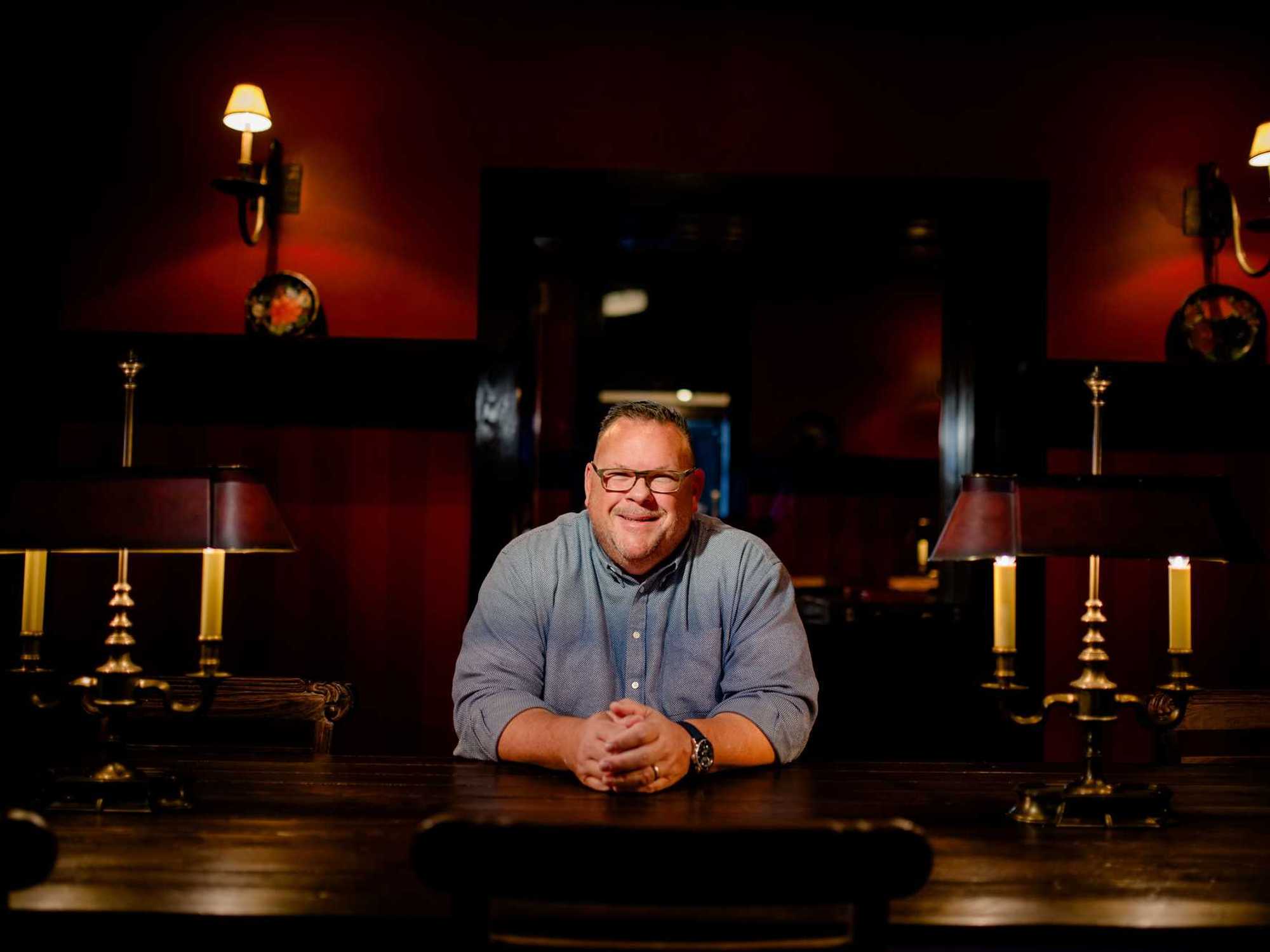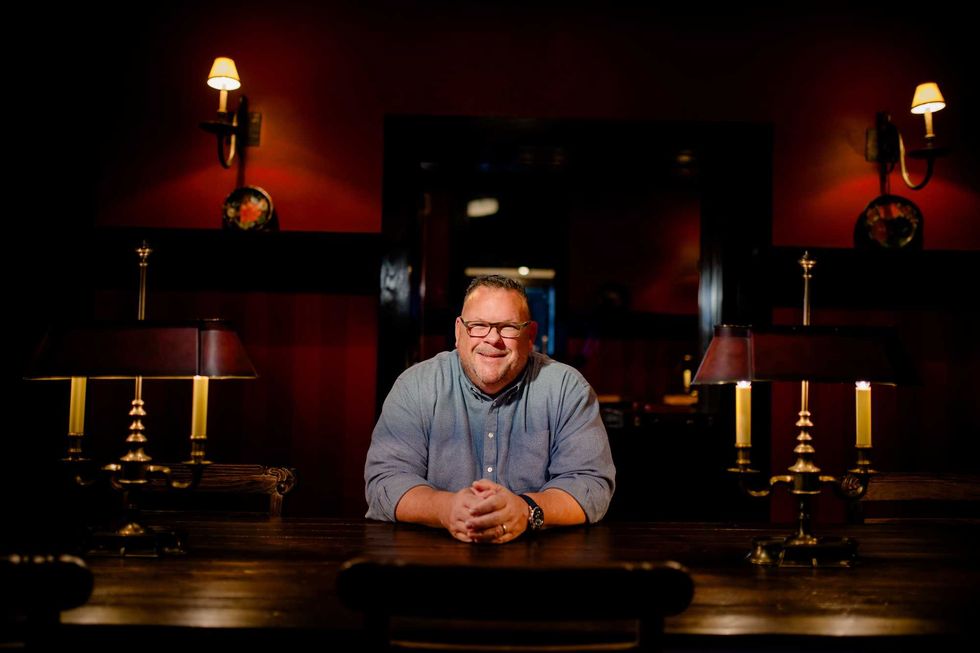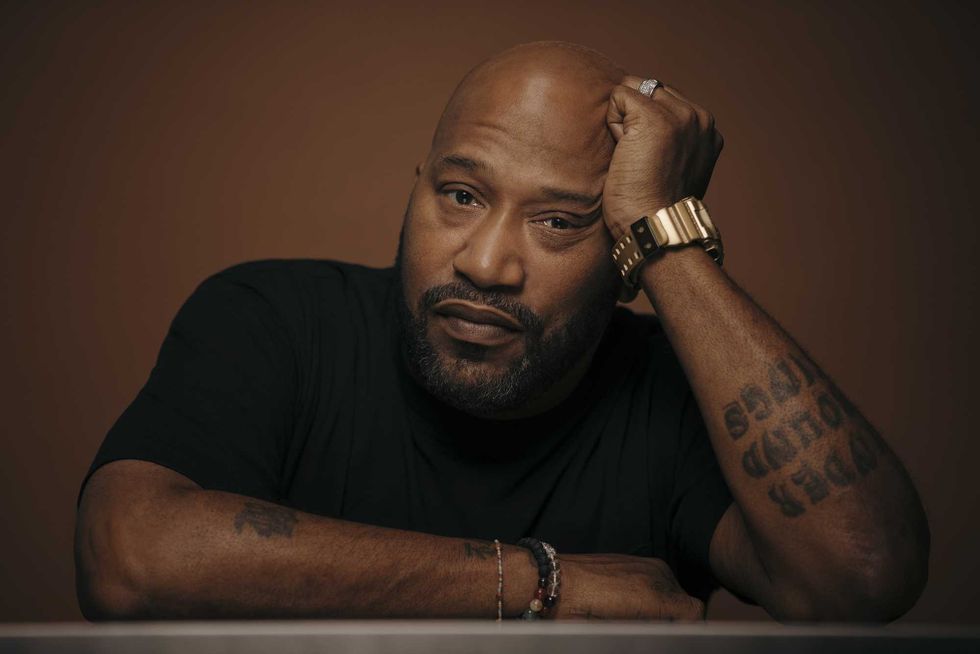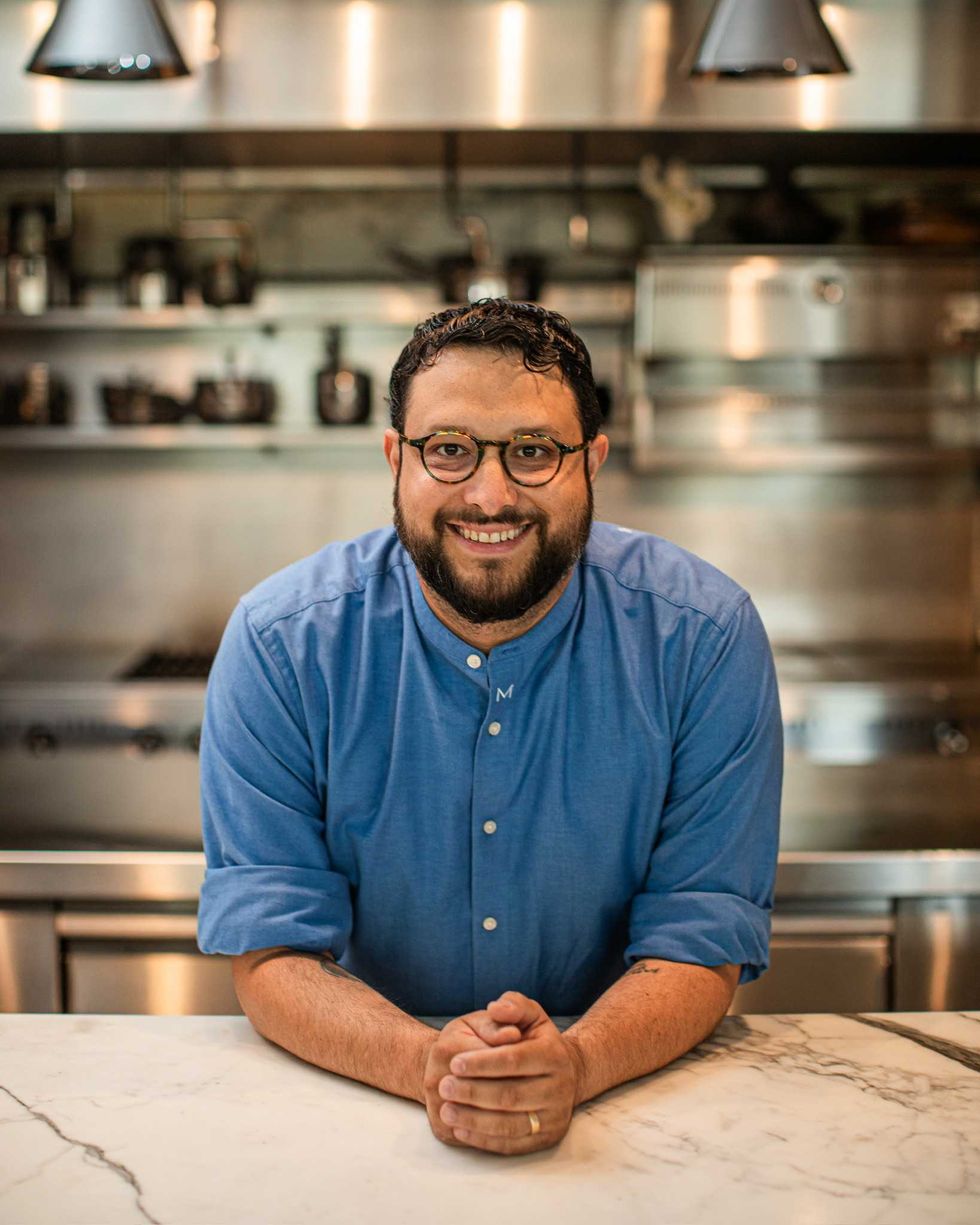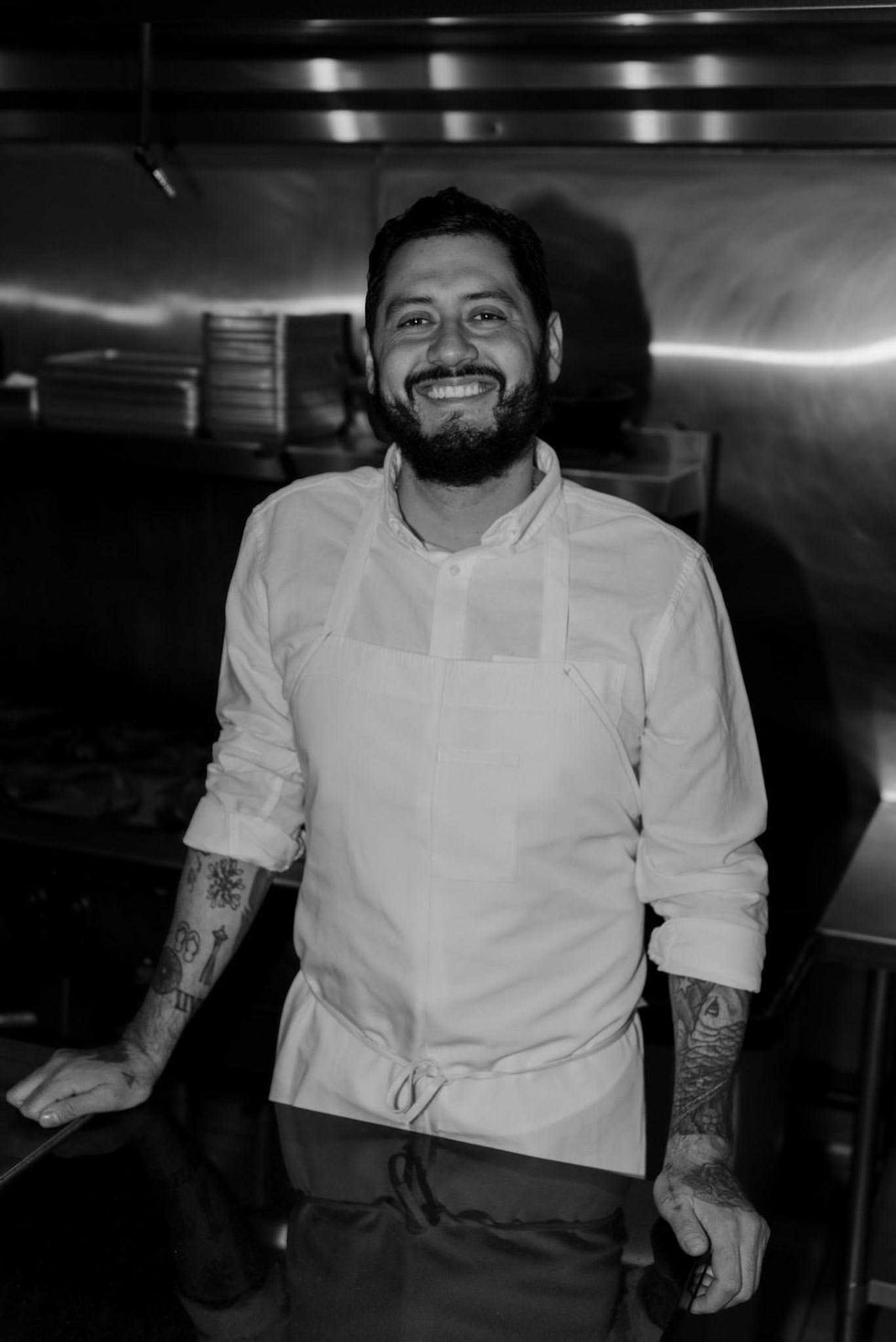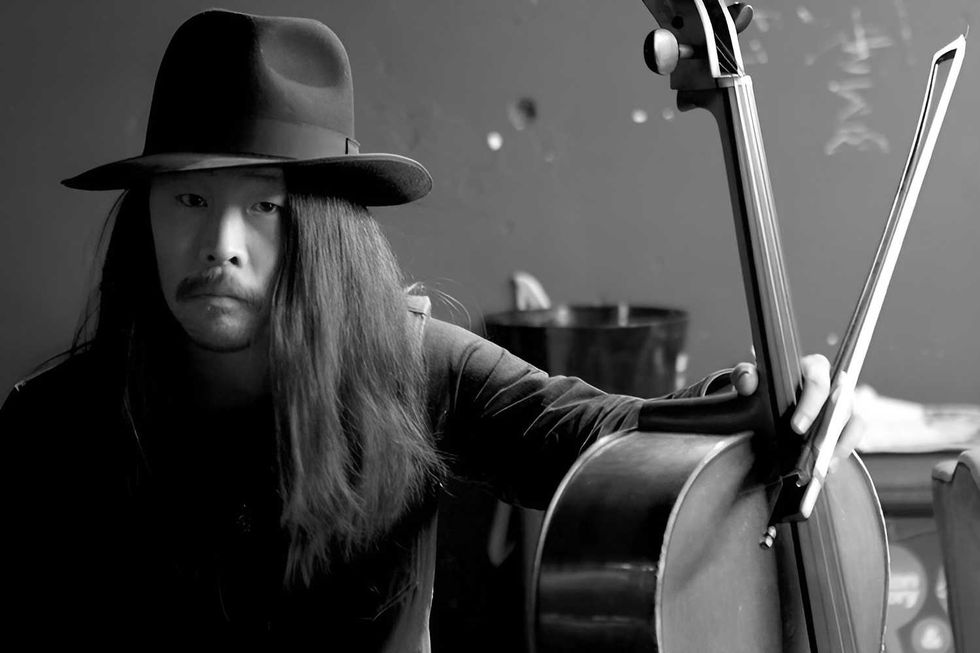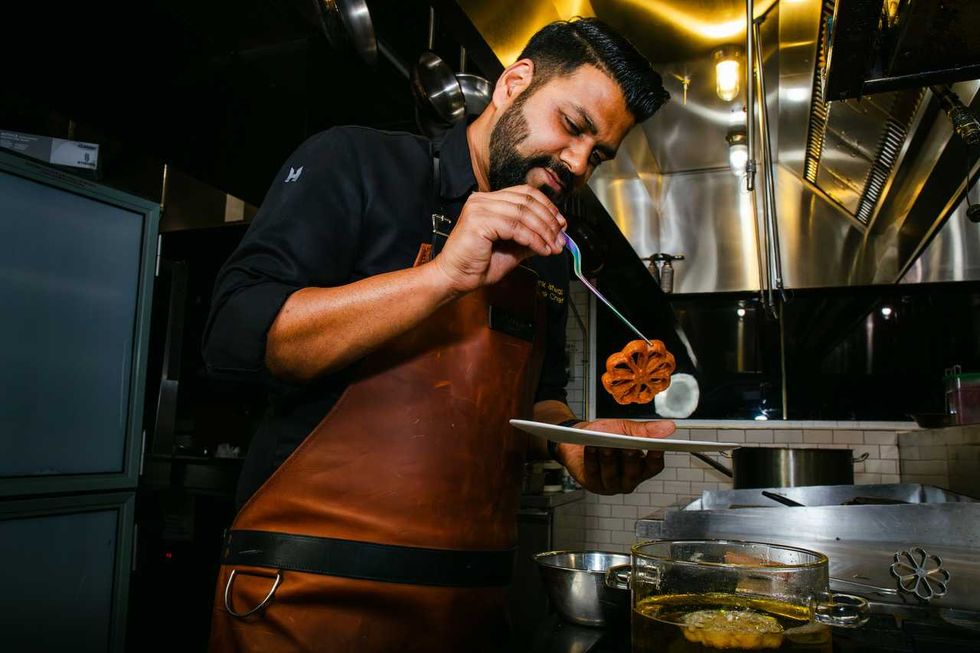Fringe benefits
A reason to party: Chamber orchestra gets jazzy with unbridled spirit of Mardi Gras
It was a concert for the history books, a performance that River Oaks Chamber Orchestra associate artistic director Suzanne LeFevre would file away as one of the best she had ever attended. Yet it wasn't chamber music in the traditional sense of the word; in fact, it wasn't even classical music.
Offering such high praise from the Yale University graduate isn't something to be taken lightly.
The Wood Brothers had Fitzgerald's rocking. The blues folk trio of siblings Chris and Oliver Wood plus Jano Rix were in the zone, tearing up selection after selection and interacting casually with listeners in an intimate setting that nurtured one-on-one connections with everyone present. LeFevre, who admits that she listens to folk, rock and popular genres more frequently than classical music (she is a closeted amateur mandolin player), was on a high.
This was special, LeFevre thought. If only she could replicate such an environment for the River Oaks Chamber Orchestra's chamber music concerts, the next of which is set for 4 p.m. Sunday at Gremillion & Co. Fine Art Gallery.
"The idea behind ROCO's chamber music series is to strengthen the quality of the orchestra from within, a Lego concept in which we pull pieces from a larger ensemble to further develop the friendships between the musicians and our listeners," LeFevre says. "Every time we play, the level of trust and our musical understanding get stronger and stronger — and that benefits the larger orchestra as a whole.
"That's especially important as the musicians of ROCO come from diverse backgrounds. Some are teachers, some are symphony players and freelancers while some have rock bands. Some are local and others come from out of town to perform."
"Think of these concerts as a primer to other music we may be playing in other venues."
But chamber music isn't without its risks. The more up-close-and-personal genre can also drive musicians apart when they don't agree. Rehearsals can heat up quickly. Tempers flair as disagreements are fueled by strong ideas. If players don't communicate openly and effectively, LeFevre says that chamber music can feel like being married without the fringe benefits.
"There's no kiss and make up," shes jokes. "Most of the time."
Most of the time? True. Musicians are passionate by nature. And with that comes, you know . . .
Chamber music has been an essential component of the River Oaks Chamber Orchestra since the nonprofit's inception. Three years ago, the strategy changed as LeFevre and orchestra founder, principal oboist Alecia Lawyer placed more emphasis on these satellite groups that function as busy kernels between full ensemble performances. First, the focus was to introduce listeners to the individual instruments via solo recitals. Now the concerts are curated to continue the dialogue between the larger concerts.
"They are not educational," LeFevre explains." They are informational. Rather than talking about sonata form, structure and the technical side of classical music, we focus on the cultural connections between music, art and history. Think of these concerts as a primer to other music we may be playing in other venues."
Party Time
Titled "Rhythms of Paris and New Orleans," the Sunday concert couples Prokofiev's Quintet Op. 39 for Oboe, Clarinet, Violin, Viola, Double Bass with David Anderson's Quintet for the same instrumentation. Joining LeFevre and Lawyer are clarinetist Nathan Williams, violinist Kirsten Yon and bassist Sandor Ostlund.
Prokofiev's Quintet was derived from his 1924 circus ballet, Trapeze. It was written within an extremely complicated rhythmic structure, a peculiarity that didn't please the dancers. Prokofiev was aware of the meter's intricate framework to the extent that he penned two versions. One model simplified the musical patterns to facilitate performance.
"Sometimes you don't need a reason to have party."
Although it's rarely executed with choreography, the score has become a standard of the chamber music repertoire as a result of the distinctive instrumentation and funky jazz affect. Composer David Anderson, principal bassist of the Louisiana Philharmonic in New Orleans, responds to Prokofiev's piece with his melange of Barber, Shostakovich and fresh jazzy riffs that form an ingenious composition.
"Anderson wrote his quintet to be a companion to Prokofiev's," LeFevre explains. "It's very common to hear them together. How many pieces do you know for this quirky instrumentation?"
While this particular chamber music concert plus refreshments isn't connected to a larger orchestra performance, it's timely in that it reflects on the unbridled spirit of Mardi Gras. The wine and light bites? Those are there to create a casual salon ambiance in which the musical adventure unfolds.
"Sometimes you don't need a reason to have a party," she adds.
___
The River Oaks Chamber Orchestra presents "Rhythms of Paris and New Orleans" on Sunday, 4 p.m., at Gremillion & Co. Fine Art Gallery. Tickets, available online or at the door, are $25 general admission and $10 for students.
